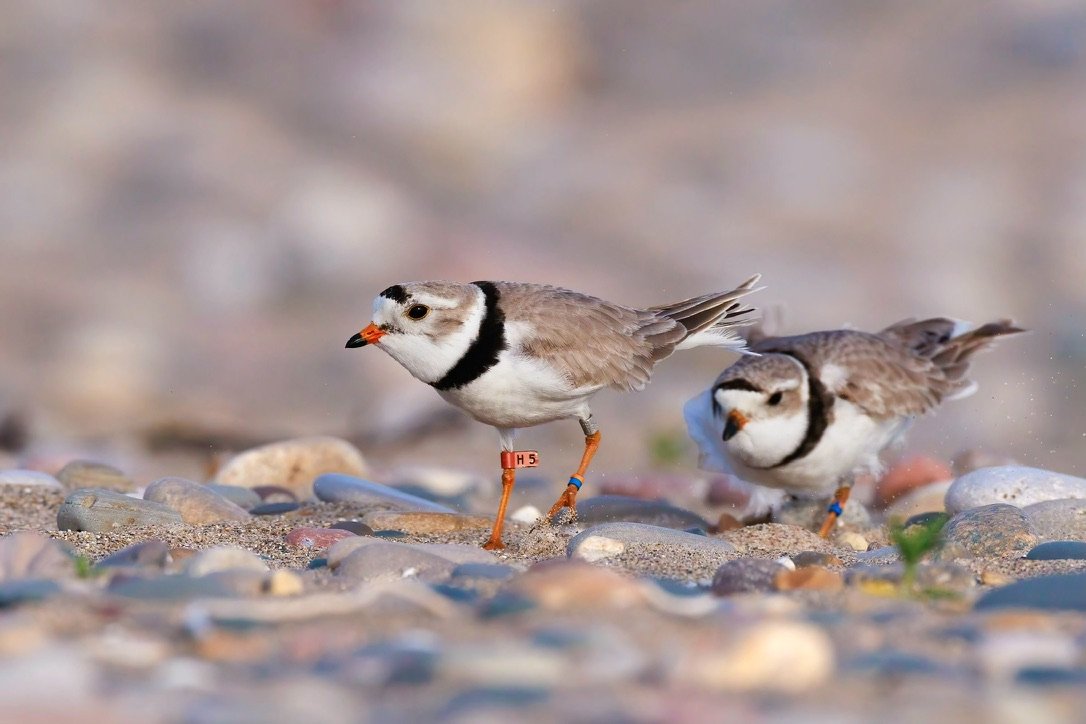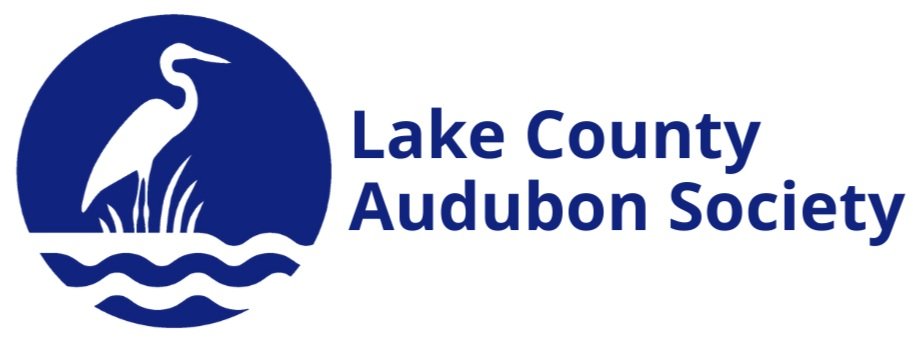
SHARING OUR SHORE - WAUKEGAN
Photo by Dan Kirk
WHAT IS SHARING OUR SHORE - WAUKEGAN?
Sharing Our Shore - Waukegan (SOS-W) was created as a response to a pair of endangered piping plovers that attempted to nest in a gravel parking lot at the Waukegan Municipal Beach in 2018. Because there was no long-term protection plan or bird monitoring program in place, local residents were unaware of the birds' endangered status.
Cars continued to drive recklessly through the parking lot and tire tracks showed that vehicles were doing circles or “doughnuts” near the nesting area. The decision was made to salvage or remove the eggs from the nest because of the inherent dangers of the nest location. The eggs were taken to the University of Michigan Biological Station in Pellston, MI to be captive-reared. The piping plover pair returned in 2019 and successfully nested at Montrose Beach in Chicago and became known as the famous “Monty & Rose.”
The Lake County Audubon Board recognized it was essential to not only help the Piping Plover, but to raise public awareness about the importance of the Waukegan dune and lakefront area. Our Audubon chapter took the initiative to reach out to the City of Waukegan with a plan to put in place a program to monitor the birds on the Waukegan lakefront and to provide education and public outreach.
With strong support from city officials, in February of 2019, Lake County Audubon signed a Memorandum of Understanding that formed the partnership with the city known as Sharing Our Shore – Waukegan. Through our Sharing Our Shore program, we gain support for conservation by developing pragmatic, long-term, trust-based relationships with elected officials, department staff and community organizations. We listen to people and provide advice, information and programs that advance good policy. We believe that informed elected officials, supported by informed citizens, will understand and take pride in the lakefront and resolve to protect and conserve it.
Our work extends to federal, state, interstate and regional agencies. We partner with many organizations that share our goals of community engagement.
Our program was designed to welcome volunteers of all skill levels. No background knowledge of birding or the Waukegan Dune area required. Some volunteers focus on bird monitoring, while other engage in public outreach and educational programs and some do both. All new volunteers receive educational materials, on-site training and, at the beginning, are partnered with an experienced volunteer.
Why Waukegan?
The Waukegan Dunes are some of the only natural sand dunes that are left in the area. The unique dune and swale habitat is home to a large diversity of plants and wildlife.
The Waukegan lakefront is a vital stopover site that birds rely upon throughout their life cycles.
The inland and coastal wetlands, marshes & beach are all vital for feeding, nesting, and as places to rest and forage during migratory journeys.
Waukegan is the only place in Illinois that Fish and Wildlife Service has designated as critical habitat for the federally endangered Piping Plover.
Waukegan named the Piping Plover the Official City Bird on May 20, 2024.
Waukegan is known as a birding “Hot Spot”.
Over 300 bird species are recorded in Lake County, IL, and 292 of these migrate through, breed, or are yearlong residents of the Waukegan area.
Waukegan was the first city in Illinois to declare 2018 the “Year of the Bird”.
With the help of Lake County Audubon Society and Sharing Our Shore, Waukegan became a registered Bird City, effective January 2022.
Birding has become a worldwide phenomenon that drives tourism to cities. Endangered and Rare Bird sightings make news headlines, draw visitors to Waukegan, and enhance public awareness and interest in Waukegan.
The Sharing Our Shore - Waukegan partnership continues to build Waukegan’s reputation as an environmentally progressive city dedicated to conserving its lake shore and promoting public environmental awareness programs.
Shorebirds Are At Risk
Shorebird populations have declined 70% in North America since the 1970s due to habitat loss, predation, climate change, and human disturbances. Shorebirds that nest on the beach do not have as much nesting habitat as they once did. Though they are adapted to survive extreme conditions on the beach, such as temperature and water level fluctuations, shorebirds can’t compete with humans for habitat unless we choose to help them.
Waukegan’s unique beach and swale habitat is home to a large diversity of plants and wildlife - including threatened and endangered species - and is excellent habitat for a wide range of birds.
Federally endangered piping plovers successfully nested in Waukegan in 2024. There are only around 80 pairs of nesting Great Lakes piping plovers, so every nest is critical!
Beach-nesting birds can be easily flushed off their nests and separated from their young chicks by people and dogs too close to the nests. That leaves the young chicks exposed to many dangers including temperature stress and predation. If the disturbance is so severe or long, the parent birds may become too stressed to return to the nest and may abandon the eggs or chicks.
By protecting the specialized habitats shorebirds need, the birds have a chance to thrive once again. That’s not only good news for the birds and Waukegan’s birding economy, but also for our next generations. Today’s kids will be able to show their children the great-great-great grandchicks of these birds and share the same joy and wonder for years to come.




